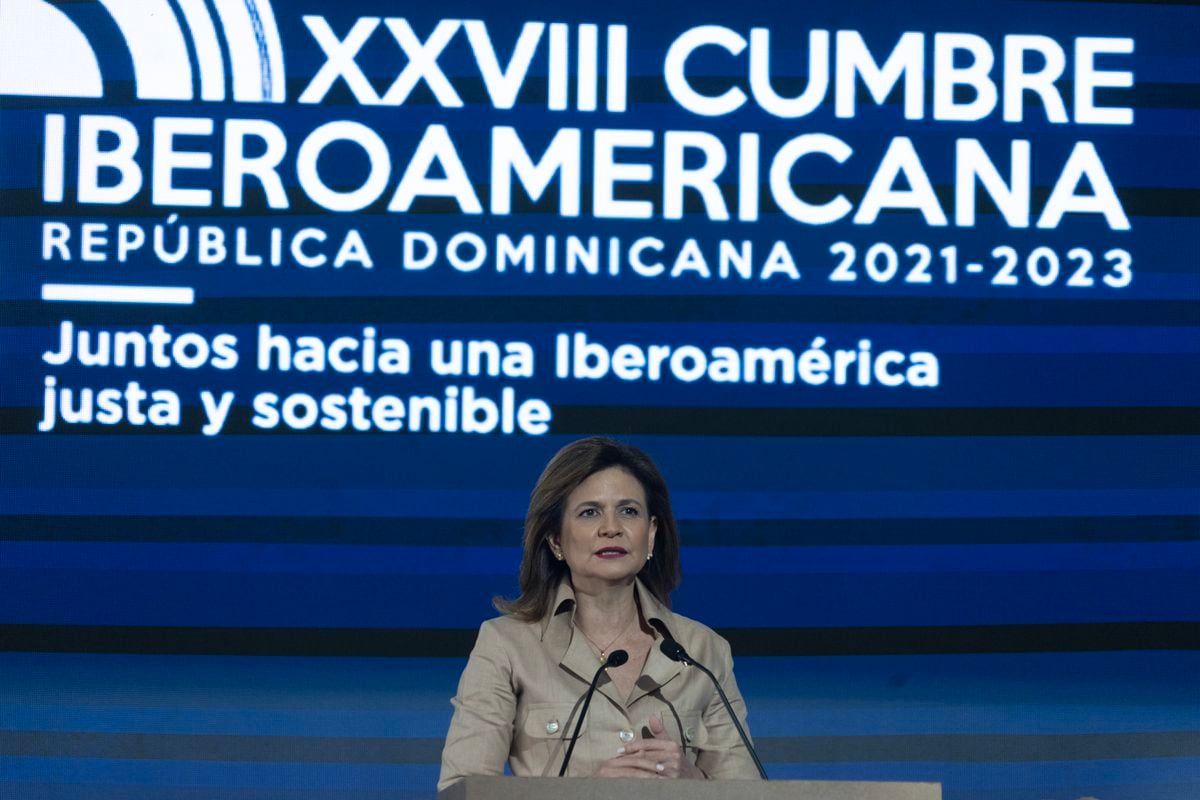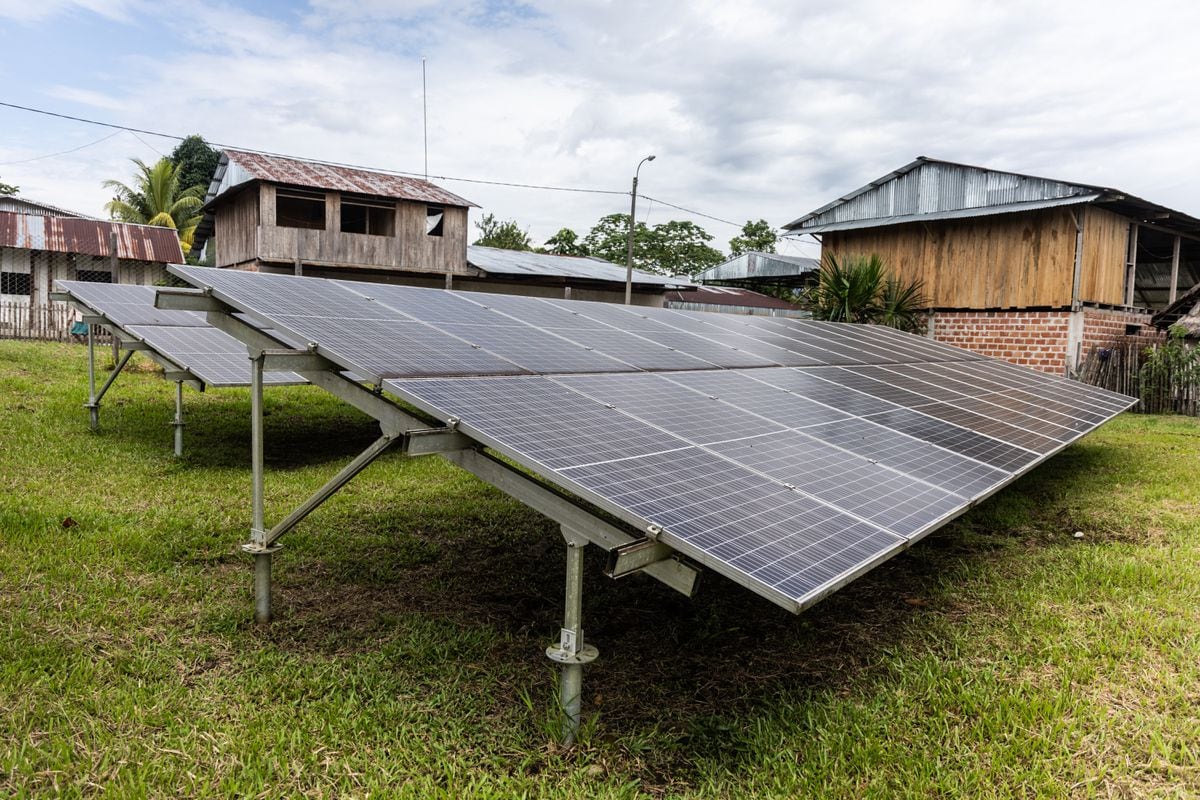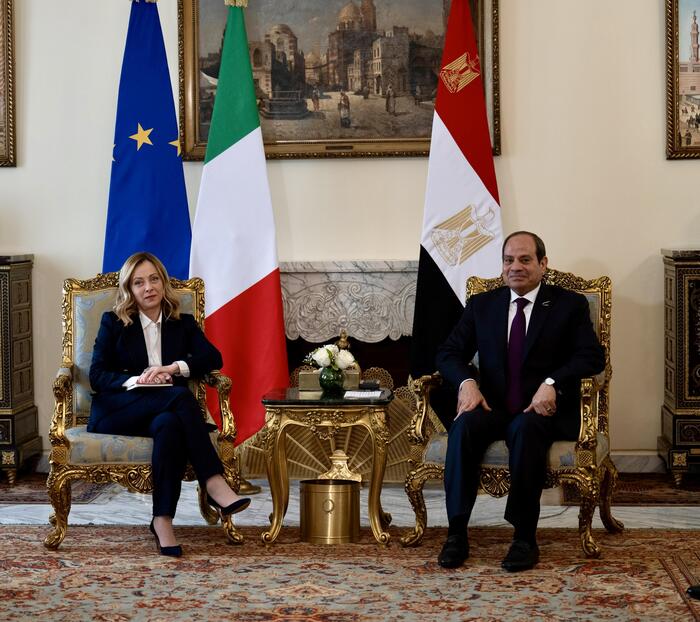The 22 countries of the Ibero-American Community of Nations will celebrate this Friday and Saturday in the Dominican Republic a summit that will finalize four instruments prepared by the different delegations.
The XXVIII meeting of the organization will debate in the meetings of foreign ministers and heads of state and government, convened under the slogan "Together for a just and sustainable Ibero-America",
four
agreements on climate change, food security, digital divide and will address a proposal on credits and international financial architecture.
The meeting in Santo Domingo, in any case, also seeks to lay the foundations to facilitate integration between the two shores of the Atlantic and some leaders, such as the Chilean Gabriel Boric, are determined to encourage a debate on the migratory challenges of the region.
After holding sectoral conferences on the climate crisis and economic challenges, the summit plans to approve two letters, a strategy and a joint statement.
The first, baptized as the Ibero-American Environmental Charter (also known as the Ibero-American Green Pact) was raised last July as the "greatest political agreement that the Ibero-American Conference has reached on environmental issues."
Then began the preparation of the working document that, according to sources from the organization, sets out some guidelines to guide public policies to protect biodiversity, combat pollution and deal with the consequences of global warming.
The second is an Ibero-American Charter of Digital Principles and Rights.
This agreement is based on the diagnosis of the gaps that already exist between the different countries and within their territories, in some cases especially deep due to the economic fabric and geographical characteristics.
According to the draft, it is about favoring inclusion and promoting legislation that has an impact in both the public and private spheres.
The educational sector, for example, or the digital transformation of companies and industries, with the purpose of increasing competitiveness, its development and the impact on the labor market.
The third agreement is a strategy related to food security.
The proposals presented by the delegations seek to increase trade within the region, support the development of supply chains, promote or consolidate small-scale agriculture, and improve financing systems for both the agri-food sector and the promotion of digital infrastructures. in rural territories.
This section is also especially linked to initiatives against climate change.
The third report of the La Rábida Observatory, presented on Wednesday by the Ibero-American Secretariat headed by former Chilean Foreign Minister Andrés Allamand, indicates that 45% of greenhouse gas emissions in the 22 countries of the community are generated by the food sector in its set.
The fourth objective is to issue a special statement on international financial architecture, that is, a proposal to pursue a more inclusive, flexible and fair financial system through credit, especially in a context of economic recovery from the covid-19 pandemic.
The underlying purposes are, ultimately, the fight against inequality and energy transition processes.
All the documents have been prepared with a gender approach that recommends adopting measures to promote the participation of women and reduce the gap in the labor market.
Another focus is education, with special attention to children, as well as innovation and universal health.
Spain proposes a reference to Ukraine
Reaching these consensuses is in itself significant because of what it means to reach an agreement between 22 delegations whose political and economic routine is marked by different agendas and which in some cases are at ideological antipodes.
And it is usual that, apart from the debates scheduled at the summit, there are presidents, foreign ministers or delegations that try to raise other urgency.
The Government of Spain, for example, will propose including in the final declaration a paragraph on Ukraine and a reference to a just peace within the framework established by the United Nations.
On the other hand, it is not planned to delve into the serious crisis in Nicaragua.
There are also countries that try to achieve a gesture for their interests.
The Cuban Minister of Foreign Affairs, Bruno Rodríguez, called this Thursday for the Santo Domingo meeting to facilitate "financial transfers and technologies to developing countries and equitable access to resources that reverse the tremendous inequalities," but above all he took advantage of the participation of the Government of the island to launch a message against Washington and the Joe Biden Administration.
“We are confident that this meeting in the sister Dominican Republic will demonstrate the firm rejection of the arbitrary and unilateral US classification of our country as a sponsor of terrorism and we hope to count on the traditional and valuable support of Ibero-America at the summit for the fair claim to put an end to the criminal and illegal blockade imposed against the Cuban people, intensified to unprecedented extremes during the pandemic," said Rodríguez in a video broadcast on social networks
Added to these claims are the absences of the leaders of the two Latin American giants by GDP and population, Brazil and Mexico.
Luiz Inácio Lula da Silva did not travel to the Dominican Republic for a visit to China, while the government of Andrés Manuel López Obrador, little friend of international summits, will not even send Foreign Minister Marcelo Ebrard.
The Mexican delegation will be headed by the undersecretary in charge of Latin America, Maximiliano Reyes.
On the other hand, the Colombian Gustavo Petro, who this Thursday met in Caracas with Nicolás Maduro (who ultimately will not participate in the summit), the Argentine Alberto Fernández and the Chilean Gabriel Boric will seek to strengthen their alliance of progressive governments.
At the same time, Fernández and the Brazilian foreign minister, Mauro Vieira,




/cloudfront-eu-central-1.images.arcpublishing.com/prisa/76GDL6UNHRFLRO2RAJWYIEXOXU.jpg)



